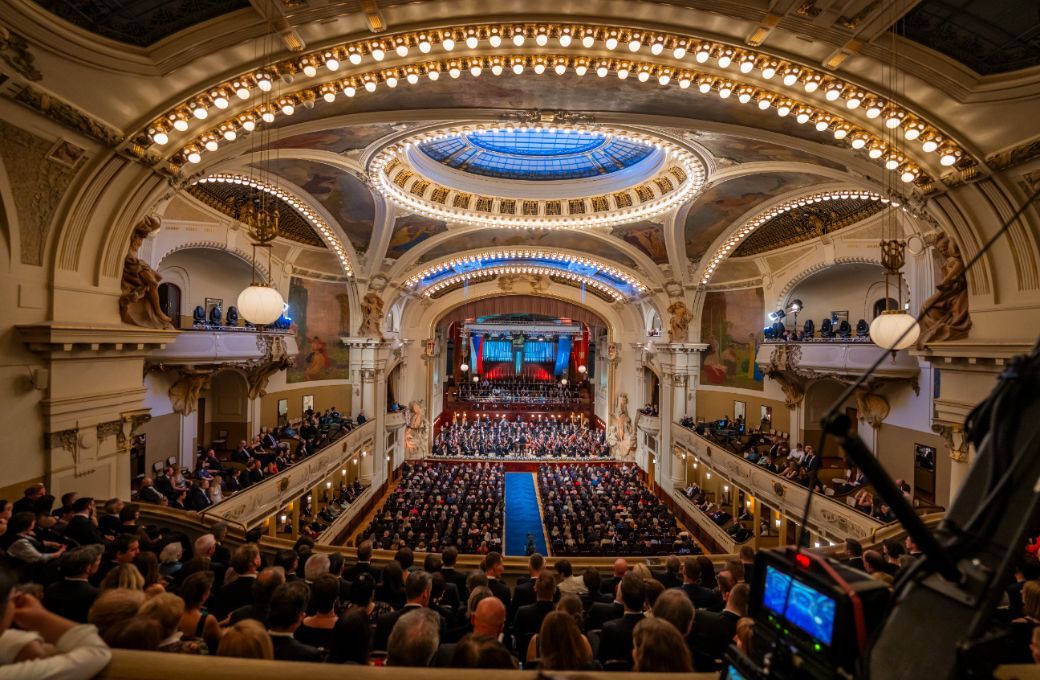The Prague Spring festival came full circle this year with the Czech Philharmonic playing the opening concert of Smetana’s Má vlast. The first edition of the festival opened 80 years ago with Rafael Kubelík leading the same orchestra in the same program, establishing a tradition that has held strong through many orchestras and conductors since. The variety of interpretations keeps the music fresh, and a recording of the latest iteration, with Chief Conductor Semyon Bychkov conducting the Czech Philharmonic, won accolades and awards.

So there was more than the usual air of anticipation when Bychkov took the podium at Prague’s Municipal House, where an image of Smetana is engraved above the stage. The opening minutes set the tone for the evening – sharp harp strings floating dreamily, quickly giving way to a tender melody that grew in volume and proportion until it was a rambunctious powerhouse, a portrait of Vyšehrad castle standing tall and proud before it finally collapses into a smoldering simmer. The style was emblematic of Bychkov’s larger work with the orchestra, fiery, fast-paced and finely balanced, every layer of the music clear and distinct.
Vltava revealed the duality in the artistic pairing. From the players, there was the heart-tugging quality that runs through much of Czech music, the emotional expression built into their DNA. From the Russian-born conductor, an animated but more formal approach gave the music sophistication, though at a cost of some warmth and spontaneity. Technically, the treatment was brilliant; on a visceral level, it felt a bit forced, even in the skillful evocation of whirling water. The approaches were complementary, persuasive in their power, but the combination never quite achieved the free-flowing rhythm of a sparkling river.
The more straightforward symphonic interpretation dominated Šarka, with the sound of clashing swords opening and closing the tale of vengeful warrior maidens. The tone of the movement was appropriately dark and the sound palette broad, almost cinematic in scope, all pushed along by a high-pitched clamor. Bohemia’s Woods and Fields started in an equally boisterous mode before relaxing into the melodies and letting them carry a sunnier narrative that soon spun up into a stormy revelry finish. The highlight of that movement came from the woodwinds, colorfully evoking bright flowers and flitting butterflies.
The final movements, Tábor and Blaník, were played with barely a pause and in large dimensions that gave the music drama and sweep, much of it with ominous overtones. Moments when the tempo slowed and the music had room to breathe suggested subtleties and nuances that never fully emerged, subsumed by martial rhythms that came off as declamatory statements. In that sense this was a commanding reading, without a hint of hesitation or reserve, an absolutely confident description and aggressive celebration of a proud land brimming with history and wonder.
One might argue that such a muscular treatment robs the piece of some of its character. But Bychkov, forced to leave Russia many years ago and unlikely to return, knows the pain of losing one’s homeland as well as anybody – and the joy of rediscovering it, if only through its music. In depicting the fervor of that attachment and the dark moments when it seems lost, this was a smart and stirring performance.


